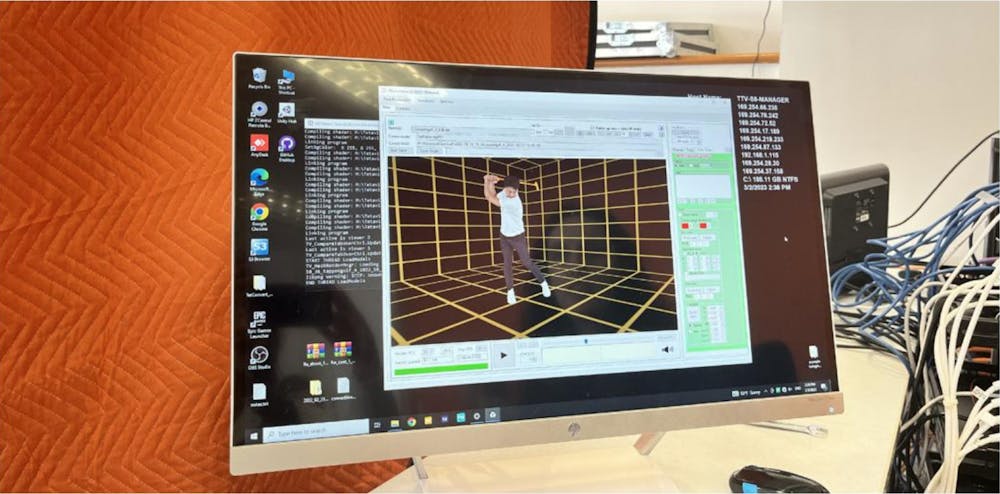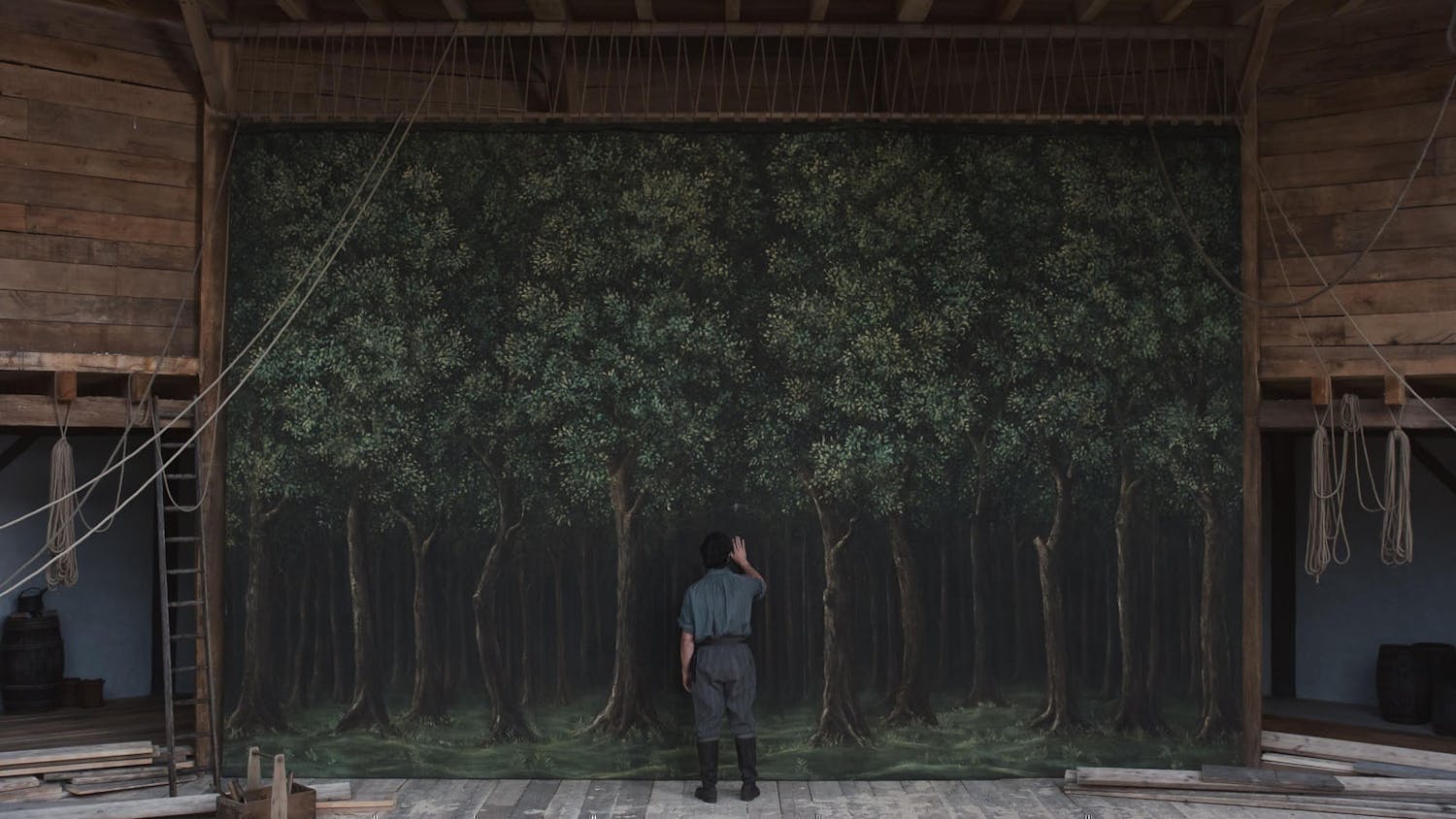From the Newsstands: This story appeared in The Eagle's April 2023 print edition. You can find the digital version here.
“Help me Obi-Wan Kenobi, you’re my only hope,” is Princess Leia’s infamous plea in “Star Wars: A New Hope.” During this scene, Princess Leia is communicating as a hologram, something that seemed dystopian when the film was first released in 1977. Now, this technology isn’t so far-fetched.
The Institute for Immersive Designs, Experiences, Applications and Stories, is a research studio in the School of Communication where students, faculty and local residents can utilize 360-degree hologram technology.
The IDEAS Institute was brought to American University in March 2022 by Krzysztof Pietroszek, an associate film professor in SOC. Through a $1 million dollar governmental MRI grant, the technology was purchased from a company called YOOM, named TetaVi at the time of purchase.
Thirty-six motion capture cameras work together to record a person or animal within a circle in the center of the room, at 360 degrees. From there, the video gets rendered and sent to eight different computers that generate a hologram of the recording.
“You can use them in AR, VR, even in 360[-degree] videos, even normal videos,” Becky Lake, a graduate student in SOC and the volumetric capture specialist for the Institute, said. “For golf, for example, you can see the pose of someone who's putting. You can see precisely at what angle or move around to see the different angles, even above. So you can help model your body,” Lake said.
The IDEAS Institute is the only place in D.C. with this kind of technology, according to Lake. While outside partners can come in to collaborate with it, such as doctors from George Washington University, this resource allows students to try their hands at unique projects across various fields ranging from theater to education.
“I am only one person, so I have ideas of how this can be used, students might have different ideas. So even ideas of things that can be done would also be wonderful as well,” Lake said.
Holographic capture can be used to render any type of movement. Some past projects have involved dance showcases, educational demonstrations and video game avatar creation.
Besides coming in with projects of their own, students can also get involved behind the scenes. Ian Whitehouse, a junior in the College of Arts and Sciences, started working on a robot after being reached out to by Pietroszek.
“It's definitely very cool getting to work with this brand new technology,” Whitehouse said.
All majors across AU are welcome, with the most frequent visitors being in the game design, computer science and film and media arts programs, Lake explained. Film and media arts majors find the IDEAS Institute as an innovative way to perceive movies.
“One of [professor Pietroszek]’s actor friends came down from New York City to film an interactive play where he gives lines of dialogue and you play the other character,” Whitehouse said about a project called “Vera” that he helped film.
Students are also encouraged to use this resource to pursue their own creative endeavors outside of the classroom. With such a rare technology available, the IDEAS Institute presents a unique opportunity to explore the world of augmented reality and the future of creative pursuits.
The IDEAS Institute is especially great for film and theater. With a 360-degree perspective, actors in film can be seen at all angles by the viewer when placing a hologram in the room they’re in. Acting can now be done with smaller casts, and characters can interact with the viewer.
“It changes how you think about directing your actors in what they do,” Lake said.





